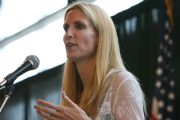
Washington State University has responded to the controversy surrounding its professors’ syllabi that trampled on free speech by censoring language in their classes. In a strongly worded statement from WSU’s interim school president Daniel J. Bernardo, the school reminded professors that they are required by law to adhere to constitutional speech protections.
Campus Reform reported this week that syllabi from at least three WSU professors included language that amounted to censorship or discrimination against the white students in the course.
One such professor is Selena Lester Breikss, whose syllabus for her Women & Popular Culture class explicitly states that students risk failure if they use common descriptors such as “male” and female,” which she has dubbed “oppressive and hateful language.”
The syllabus indicates that punishment for violating this rule includes but is not limited to “removal from the class without attendance or participation points, failure of the assignment, and — in extreme cases — failure for the semester.”
Professor Rebecca Fowler has imposed equally strict rules for her “Introduction to Comparative Ethnic Studies” course. Students are forbidden from using the term “illegal alien” in their assigned writing. Each time a student uses the term, a point will be deducted from his paper.
Fowler’s syllabus also states that the course will help students “come to recognize how white privilege functions in everyday social structures and institutions.”
Fowler defended her syllabus in an e-mail to Campus Reform, wherein she wrote, “The term ‘illegal alien’ has permeated dominant discourses that circulate in the news to the extent that our society has come to associate ALL unauthorized border crossings with those immigrants originating from countries south of our border (and not with Asian immigrants, for example, many of whom are also in the country without legal documents and make up a considerable portion of undocumented immigrants living in the country).”
“The socio-legal production of migrant illegality works to systematically dehumanize and exploit these brown bodies for their labor,” Fowler continued.
WSU professor John Streamas singles out white students in his syllabus and instructs them to “defer” to non-white students if they intend to “do well in this class.”
In the guidelines in his syllabus, Streamas elaborates that he requires students to “reflect” on their grasp of history and social relations “by respecting shy and quiet classmates and by deferring to the experiences of people of color” and to “understand and consider the rage of people who are victims of systematic injustice.”
Fortunately, WSU’s president Bernardo issued a statement on Monday assuring that the rights of students in Breikss’, Fowler’s, and Streamas’ classes will be protected. “Over the weekend, we became aware that some faculty members, in the interest of fostering a constructive climate for discussion, included language in class syllabi that has been interpreted as abridging students’ free speech rights,” the statement read. “We are working with these faculty members to clarify, and in some cases modify, course policies to ensure that students’ free speech rights are recognized and protected.”
“Washington State University deeply values the tenets of freedom of expression for every member of our community, including all students, faculty and staff,” he stated. “Those First Amendment rights are reinforced in our policies, procedures and practices.”
Bernardo added that the professors are not permitted to lower students’ grades for using words that the professors have deemed to be offensive. “Blanket restriction of the use of certain terms is not consistent with the values upon which this university is founded,” Bernardo wrote.
Bernardo’s statement also included a passionate defense of free speech rights. “Open dialogue, vigorous debate and the free exchange of ideas, as well as the language used to convey those ideas, are at the core of who we are as a higher education institution,” he wrote. “Free speech and constructive climate for learning are not incompatible. We aim to cultivate diversity of expression while protecting individual rights and safety.”
Bernardo concluded by asking WSU professors to revisit their syllabi to verify there is nothing within them that could be construed as a violation of student rights.
WSU’s response to the syllabi controversy is a refreshing change from what seems to be the norm at some colleges across the country. Earlier this year, for example, Polk State College stood behind a humanities professor accused of giving students anti-Christian assignments.
“The overall fallacy of your position rests singly on the premise that an instructor should not require a student to consider, discuss or present arguments that are contrary to his/her personal beliefs,” lawyers for Polk State wrote in response to a complaint filed by Liberty Counsel that claims humanities professor Lance Russum discriminated against a student by failing her on assignments based on her Christian beliefs.
And last year, the University of California Santa Barbara took the side of the feminist studies professor who was charged with assault for attacking two young anti-abortion protesters. In a letter from Michael Young, the university’s vice chancellor, the school conceded that the professor should not have responded so extremely to the situation, but also ultimately seemed to place the entire blame for the incident on the girls’ presence on campus.
And some schools have defended professors for more than just their radical political views, and appear willing to defend any behavior that strays from what most would consider to be normal and appropriate.
At the University of California in San Diego this past spring, officials defended an art professor who for the past 11 years has encouraged his students to perform their final examinations in the nude. The school’s defense was that being nude was just one option for the final exam, but that students could also opt to be metaphorically nude, as in “laying bare of one’s ‘traumatic’ or most fragile and vulnerable self.”




